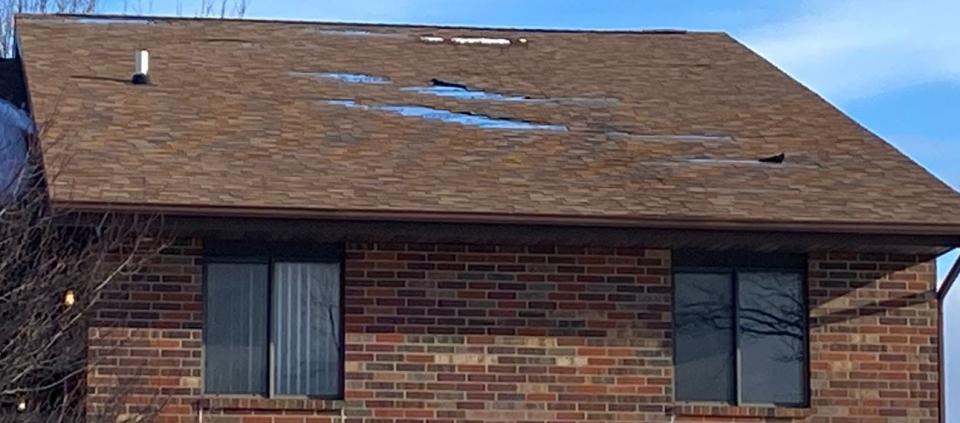Bill seeks improved inspection of federally backed apartments after maintenance problems, fires
A bill U.S. Rep. Cindy Axne of Iowa has introduced in Congress would set higher inspection standards for federally backed, low-income housing and give tenants a way to provide feedback about the condition of their apartments.
Axne’s move follows deadly fires this year within days of each other at federally subsidized housing complexes in Philadelphia and the Bronx.
It also comes after a Des Moines Register Watchdog investigation into widespread tenant complaints about neglected maintenance at apartment complexes overseen by one of Iowa’s largest low-income property managers, Brad Carlson of Spencer, who runs both Truverse Management and Carlson Property Holdings and Management.

More: Across Iowa, tenants of subsidized Truverse apartments frustrated by lax maintenance, confusing fees
Many subsidized housing units offered by the U.S. Departments of Agriculture and Housing and Urban Development have fallen behind on maintenance and upkeep, due in a large part to a lack of funding, a news release from Axne's office said. The agriculture department's Section 515 multifamily program’s projected capital needs have reached $10 billion, but the agency has not financed new development for the program since 2011.
More: Exclusive monthly report: Most Des Moines metro home prices continued to rise in April
“This underinvestment, in addition to a lack of inspection and oversight, has led to major problems at federally-backed properties," Axne said in the release. "This includes fires earlier this year at buildings in New York and Philadelphia that killed 29 people, as well as significant issues at USDA federally backed properties in Iowa managed by Truverse Management and Carlson Property Holdings and Management, including broken roofs, no heat or air conditioning, inoperable fire doors, and other poor conditions.”

Called the Safe At Home Act, the legislation would ensure that the housing inspection standards eventually established matched the most stringent requirements used by either the Department of Housing and Urban Development or the agriculture department.
The legislation “would allow for more situations exactly like what’s happened at Truverse/Carlson properties to be caught faster,” said Paige Godden, Axne’s communications chief.
More: 5 things to know about the real estate market Des Moines this summer
Since 2018, Carlson has led not only his own family business, Carlson Property Holdings and Management, but also Truverse, a larger company. Operating from Spencer, near the Iowa Great Lakes, he took over the helm of Truverse after its founder was imprisoned for defrauding the federal government in a tax credit development project.
This year, almost 50 tenants Watchdog interviewed at 16 Iowa properties managed by Carlson's companies said they have lived in increasingly run-down and unsafe conditions over the last three years.
Many of the properties managed by Carlson’s companies are part of the agriculture department's multifamily housing program. The legislation would ultimately strengthen the department's inspection standards, said Axne's communications director, Paige Godden.
The Safe at Home Act would require that within 12 months, the housing and urban development and agriculture secretaries review the laws, regulations, and requirements governing each of their respective housing inspection processes and identify which procedures best protect residents.
The two departments would then have 12 months to jointly issue regulations to implement the requirements for inspection and safety that best protect residents of federally backed housing while considering the type of housing (for example, single family homes vs. apartment buildings) that is being supported and inspected.
“This process will serve to better protect the residents of these properties and the communities they live in, as well as ensuring that federal funding is being properly used to benefit the residents it is intended to support,” Godden said.
The housing and urban development department is moving to a new tracking system called NSPIRE that allows tenants to provide feedback about the conditions of their units to ensure they are safe and habitable. The legislation would allow the agriculture department, which subsidizes units across rural Iowa, to use the same system, Godden said.
Standardizing the inspection requirements also would allow for more crossover in terms of inspections, freeing up more staff to look in detail at properties where there are issues, which will also be clearer through the tenant feedback process, Godden said.
Lee Rood's Reader's Watchdog column helps Iowans get answers and accountability from public officials, the justice system, businesses and nonprofits. Reach her at lrood@registermedia.com, at 515-284-8549, on Twitter at @leerood or on Facebook at Facebook.com/readerswatchdog.
This article originally appeared on Des Moines Register: Rep. Cindy Axne of Iowa files bill to boost low-income housing inspections

